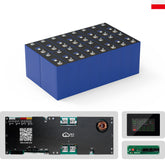Wie lange kann ein Erhaltungsladegerät an einer Rasenmäherbatterie verwendet werden?
Die Verwendung eines Erhaltungsladegeräts ist eine der effektivsten Möglichkeiten, die Lebensdauer einer Rasenmäherbatterie zu verlängern und sicherzustellen, dass Ihr Gerät immer einsatzbereit ist, wenn Sie es brauchen. Aber wie lange sollte es angeschlossen bleiben? Die richtige Ladezeit ist entscheidend für die Gesundheit und Sicherheit der Batterie. In diesem Artikel erfahren Sie alles, was Sie über die sichere Verwendung eines Erhaltungsladegeräts für eine Rasenmäherbatterie wissen müssen, einschließlich bewährter Verfahren, Wartungstipps und häufigen Fehlern, die Sie vermeiden sollten.
- Grundlagen der Rasenmäherbatterie und Erhaltungsladung
- Wie lange kann ein Erhaltungsladegerät sicher an einer Rasenmäherbatterie verwendet werden?
- Anzeichen dafür, dass die Batterie Ihres Rasenmähers eine Erhaltungsladung benötigt
- Risiken, wenn ein Erhaltungsladegerät zu lange eingeschaltet bleibt
- Bewährte Vorgehensweisen für die Verwendung eines Erhaltungsladegeräts für eine Rasenmäherbatterie
- Tipps zur Langzeitlagerung und Wartung der Rasenmäherbatterie
Grundlagen der Rasenmäherbatterie und Erhaltungsladung
Bevor wir uns mit der Zeitmessung befassen, ist es wichtig zu verstehen, wie eine Rasenmäherbatterie funktioniert und was Erhaltungsladung eigentlich bedeutet.
Was ist eine Rasenmäherbatterie?
Eine Rasenmäherbatterie ist typischerweise eine 12-Volt-Blei-Säure-Batterie, die ausreichend Strom zum Starten des Motors und zum Betrieb aller notwendigen elektronischen Geräte wie Lichter oder Elektrostarter liefert. Diese Batterien sind kleiner als Autobatterien, funktionieren aber ähnlich.
Es gibt verschiedene Arten:
Geflutete Blei-Säure-Batterien (FLA)
Absorbierende Glasmatte (AGM)
Lithium-Ionen (bei Standardmähern weniger verbreitet)
Was ist ein Erhaltungsladegerät?
Ein Erhaltungsladegerät ist ein Batterieladegerät mit niedriger Stromstärke, das die volle Ladung einer Batterie über längere Zeiträume aufrechterhält, ohne sie zu überladen. Es liefert einen geringen Strom – normalerweise zwischen 0,5 und 2 Ampere – und ist somit ideal, um die Ladung einer Batterie während langer Lagerzeiten aufrechtzuerhalten.
>>Siehe auch den vollständigen Leitfaden zu AGM-Gel- und Blei-Säure-Batterien für Golfwagen
Wie lange kann ein Erhaltungsladegerät sicher an einer Rasenmäherbatterie verwendet werden?
Die goldene Regel, wie lange Sie ein Erhaltungsladegerät an die Batterie Ihres Rasenmähers angeschlossen lassen sollten, hängt vom Typ des Ladegeräts und dem Zustand der Batterie ab.
Intelligente vs. manuelle Erhaltungsladegeräte
Intelligente Erhaltungsladegeräte können unbegrenzt eingeschaltet bleiben. Sie verfügen über integrierte Mikroprozessoren, die automatisch in den Erhaltungsmodus wechseln, sobald die Batterie vollständig geladen ist.
Manuelle Erhaltungsladegeräte sollten je nach Stromstärke nur 6–12 Stunden lang verwendet werden. Sie müssen diese überwachen, um eine Überladung zu vermeiden.
Typische Ladedauer je nach Batteriezustand
|
Batteriezustand |
Empfohlene Ladezeit |
|
Vollständig aufgeladen (Speicher) |
Unbegrenzt mit einem intelligenten Ladegerät |
|
Teilentladen |
8–12 Stunden mit 1-Ampere-Ladegerät |
|
Tief entladen |
12–24 Stunden mit 1-Ampere-Ladegerät |
Die Temperatur beeinflusst die Ladezeit
In kälteren Umgebungen kann das Aufladen einer Rasenmäherbatterie aufgrund langsamerer chemischer Reaktionen länger dauern. In solchen Fällen kann es zusätzliche 2–4 Stunden dauern.
Anzeichen dafür, dass die Batterie Ihres Rasenmähers eine Erhaltungsladung benötigt
Nicht jede Batterie muss ständig mit Erhaltungsladung versorgt werden. So erkennen Sie, wann der richtige Zeitpunkt gekommen ist.
Langsames Anlassen des Motors
Wenn Ihr Rasenmäher langsam dreht oder Probleme beim Starten hat, ist das ein klares Zeichen dafür, dass Ihre Batterie schwach sein könnte und eine Erhaltungsladung von Vorteil wäre.
Die Batteriespannung fällt unter 12,4 V
Wenn Sie mit einem Multimeter feststellen, dass die Spannung Ihrer Rasenmäherbatterie weniger als 12,4 Volt beträgt, ist die Kapazität nicht mehr voll und die Batterie muss aufgeladen werden.
Die Batterie war länger als 30 Tage im Lager
Rasenmäherbatterien verlieren mit der Zeit an Ladung. Ein Erhaltungsladegerät kann verhindern, dass sie während der Lagerung außerhalb der Saison vollständig entladen werden.
Risiken, wenn ein Erhaltungsladegerät zu lange eingeschaltet bleibt
Obwohl das Erhaltungsladen sicher ist, kann die Batterie Ihres Rasenmähers beschädigt werden, wenn Sie ein Ladegerät – insbesondere ein manuelles – zu lange eingeschaltet lassen.
Überladung und Batterieschäden
Übermäßiges Laden kann Folgendes verursachen:
Elektrolytverlust
Aufquellen oder Reißen des Batteriegehäuses
Sulfatierung (bei Blei-Säure-Batterien)
Brandgefahr durch billige oder fehlerhafte Ladegeräte
Ladegeräte von schlechter Qualität verfügen möglicherweise nicht über Sicherheitsabschaltungen, was das Brandrisiko erhöht. Verwenden Sie immer UL-gelistete oder CE-zertifizierte Erhaltungsladegeräte.
Bewährte Vorgehensweisen für die Verwendung eines Erhaltungsladegeräts für eine Rasenmäherbatterie
Wenn Sie das Beste aus Ihrem Rasenmäherakku herausholen möchten, befolgen Sie diese Expertentipps.
H3: Verwenden Sie nach Möglichkeit ein intelligentes Ladegerät
Intelligente Erhaltungsladegeräte überwachen die Spannung und passen die Laderate entsprechend an. Dies verhindert ein Überladen und verlängert die Lebensdauer der Batterie.
H3: Laden Sie in einem gut belüfteten Bereich
Bewahren Sie Ihre Batterie und Ihr Ladegerät immer an einem trockenen, belüfteten Ort auf, um die Bildung von Wasserstoffgas aus Blei-Säure-Batterien zu vermeiden.
H3: Trennen Sie die Verbindung nach vollständiger Ladung, wenn Sie ein manuelles Ladegerät verwenden
Wenn Sie kein intelligentes Ladegerät verwenden, messen Sie die Zeit Ihrer Sitzung und trennen Sie das Ladegerät, sobald der Akku vollständig geladen ist (normalerweise 12,6–12,8 Volt).
H3: Batteriewasserstand prüfen (bei gefluteten Typen)
Blei-Säure-Batterien verlieren beim Laden Wasser. Prüfen und bei Bedarf destilliertes Wasser nachfüllen.
Tipps zur Langzeitlagerung und Wartung der Rasenmäherbatterie
Die Wartung außerhalb der Saison ist entscheidend für die Langlebigkeit der Batterie. So pflegen Sie die Batterie Ihres Rasenmähers über den Winter oder bei längerer Lagerung.
Entfernen Sie die Batterie aus dem Mäher
Trennen Sie die Batterie immer vom Mäher, um eine parasitäre Entladung durch die Elektronik oder Sicherheitsfunktionen zu vermeiden.
Verwenden Sie einen Batterie-Wartungsgerät
Batterieladegeräte sind fortschrittliche Erhaltungsladegeräte, die speziell dafür entwickelt wurden, monatelang eingeschaltet zu bleiben, ohne die Batterie zu beschädigen.
Kühl und trocken lagern
Vermeiden Sie extreme Temperaturen. Batterien, die in heißen Garagen oder eiskalten Schuppen gelagert werden, können schneller versagen.
Alle 30 Tage prüfen
Überprüfen Sie die Batterie auch bei einem Erhaltungsladegerät monatlich auf Anzeichen von Korrosion, Schwellung oder Flüssigkeitsverlust.
>>Siehe auch: Auswahl zwischen 72-V- und 48-V-Golfwagen – Ein detaillierter Vergleich
Häufige Fragen zum Erhaltungsladen einer Rasenmäherbatterie
Kann ich mein Erhaltungsladegerät über Nacht eingeschaltet lassen?
Ja – wenn es sich um ein intelligentes Ladegerät handelt. Manuelle Ladegeräte sollten nach der empfohlenen Zeit (6–12 Stunden) getrennt werden.
Kann eine leere Rasenmäherbatterie durch Erhaltungsladung wiederbelebt werden?
Das kommt darauf an. Ist die Batterie tiefentladen, aber nicht beschädigt, kann eine langsame Erhaltungsladung über 24 Stunden helfen. Eine sulfatierte Batterie erholt sich jedoch möglicherweise nicht mehr.
Ist Erhaltungsladung besser als Starthilfe?
Absolut. Starthilfe bietet eine vorübergehende Lösung, während Erhaltungsladung die Batterie langsam und sicher wiederherstellt.
Alternativen zum Erhaltungsladen Ihrer Rasenmäherbatterie
Während die Erhaltungsladung ideal für die Wartung ist, ist sie nicht die einzige Option.
Solarladegeräte
Solar-Erhaltungsladegeräte eignen sich hervorragend für netzunabhängige Speicherorte. Achten Sie nur darauf, dass sie leistungsstark genug (mindestens 1,5 W) für eine 12-V- Rasenmäherbatterie sind.
Regelmäßiges vollständiges Aufladen
Sie können den Akku während der Lagerung auch monatlich 4–6 Stunden lang mit einem Standardladegerät mit 2 Ampere aufladen.
Batterietrennschalter
Durch die Installation eines Batterietrennschalters lässt sich eine parasitäre Stromaufnahme verhindern, wenn der Rasenmäher längere Zeit im Leerlauf ist.
























Leave a comment
All blog comments are checked prior to publishing